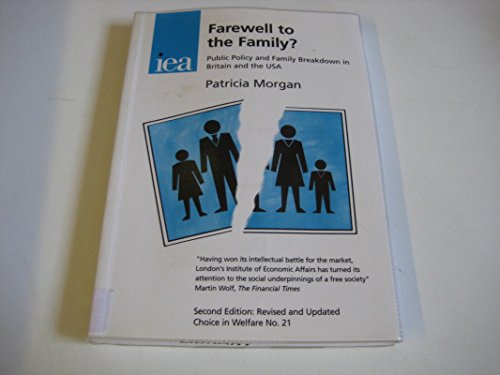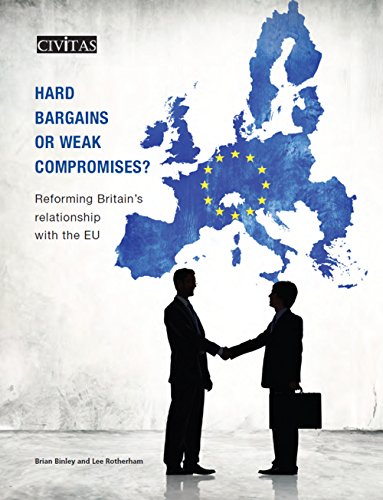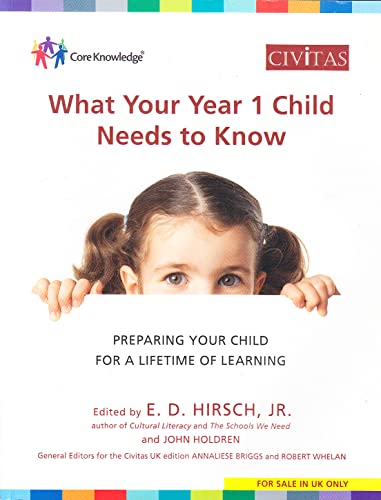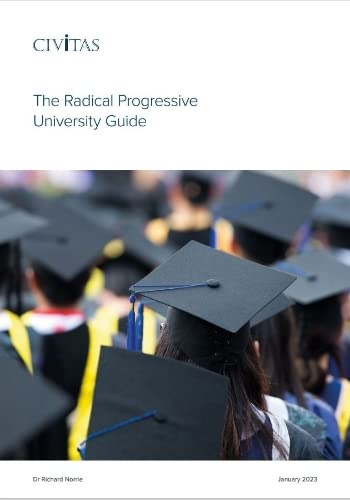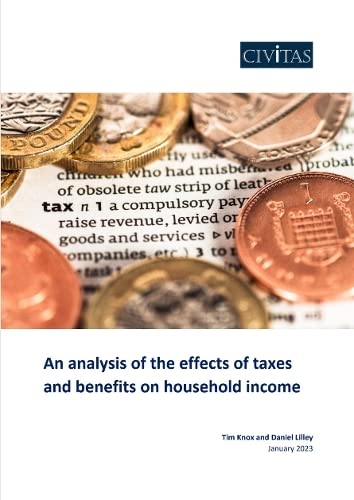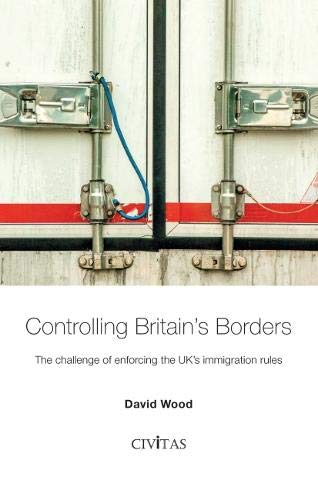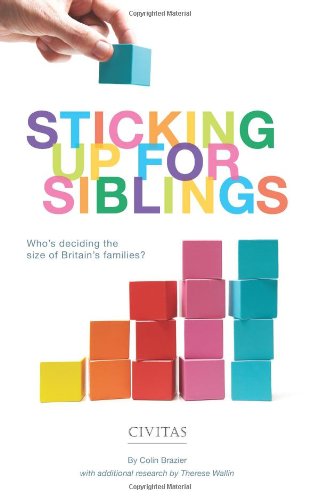civitas london united kingdom (22 Ergebnisse)
Produktart
- Alle Produktarten
- Bücher (22)
- Magazine & Zeitschriften
- Comics
- Noten
- Kunst, Grafik & Poster
- Fotografien
- Karten
-
Manuskripte &
Papierantiquitäten
Zustand
- Alle
- Neu
- Antiquarisch/Gebraucht
Einband
- alle Einbände
- Hardcover
- Softcover
Weitere Eigenschaften
- Erstausgabe
- Signiert
- Schutzumschlag
- Angebotsfoto
- Kein Print-on-Demand
Land des Verkäufers
Verkäuferbewertung
-
Farewell to the Family?: Public Policy and Family Breakdown in Britain and the USA
Verlag: Civitas:Institute for the Study of Civil Society, United Kingdom, London, 1995
ISBN 10: 0255363567ISBN 13: 9780255363563
Anbieter: WorldofBooks, Goring-By-Sea, WS, Vereinigtes Königreich
Buch
Paperback. Zustand: Very Good. The book has been read, but is in excellent condition. Pages are intact and not marred by notes or highlighting. The spine remains undamaged.
-
We're (Nearly) All Victims Now: How Political Correctness is Undermining Our Liberal Culture: No. 53 (Civil Society S.)
Verlag: Civitas:Institute for the Study of Civil Society, United Kingdom, London, 2006
ISBN 10: 1903386535ISBN 13: 9781903386538
Anbieter: WorldofBooks, Goring-By-Sea, WS, Vereinigtes Königreich
Buch
Paperback. Zustand: Very Good. The book has been read, but is in excellent condition. Pages are intact and not marred by notes or highlighting. The spine remains undamaged.
-
The West, Islam and Islamism: Is Ideological Islam Compatible with Liberal Democracy?
Verlag: Civitas:Institute for the Study of Civil Society, United Kingdom, London, 2003
ISBN 10: 1903386292ISBN 13: 9781903386293
Anbieter: WorldofBooks, Goring-By-Sea, WS, Vereinigtes Königreich
Buch
Paperback. Zustand: Very Good. The book has been read, but is in excellent condition. Pages are intact and not marred by notes or highlighting. The spine remains undamaged.
-
Adoption and the Care of Children: The British and American Experience (Choice in Welfare): No. 42. (Choice in Welfare S.)
Verlag: Civitas:Institute for the Study of Civil Society, United Kingdom, London, 1998
ISBN 10: 0255364342ISBN 13: 9780255364348
Anbieter: WorldofBooks, Goring-By-Sea, WS, Vereinigtes Königreich
Buch
Paperback. Zustand: Good. Adoption is out of favour. Numbers have fallen dramatically, and baby adoptions have become rare events. Recent trends in family law make it increasingly unlikely that children will ever be declared free to be adopted, while would-be adopters are discouraged by a series of obstacles and abjections. Consequently children who are unable to live with their natural parents are likely to spend long periods - possibly their entire childhoods - 'in care'. This can entail years of to-ing and fro-ing between children's homes, foster parents, and repeated attempts to re-unite them with neglectful and often abusive parents. The results for the children concerned are extremely poor, and all the evidence suggests that the state makes a very bad substitute parent. Children who have spent time 'in care' are more prone to psychiatric disorders, they suffer in terms of education and health, and they often 'graduate' from the system to homelessness, unemployment and prison. The results for adopted children, on the other hand, are extremely good. They do well by all measures. When they experience problems, these often relate to their early childhood trauma at the hands of their natural parents, or to long periods spent 'in care' prior to adoption. In this book Patricia Morgan argues that childcare legislation and practice should be re-organised so that adoption becomes the first, not the last, option for children who cannot live with their parents. A child welfare system for the twenty-first century should be built around finding a permanent home for every child. The book has been read but remains in clean condition. All pages are intact and the cover is intact. Some minor wear to the spine.
-
The Uncertain Trumpet: A History of Church of England School Education to AD 2001 (Culture wars)
Verlag: Civitas:Institute for the Study of Civil Society, United Kingdom, London, 2001
ISBN 10: 1903386136ISBN 13: 9781903386132
Anbieter: WorldofBooks, Goring-By-Sea, WS, Vereinigtes Königreich
Buch
Paperback. Zustand: Very Good. From the arrival of the Celtic monks until well into the 19th century, all formal education in Britain was religious education. Until the middle of the 17th century, formal education was under the sole auspices of the Church of England. But whether strictly under the control of the Church of England or not, the prevailing belief was that, without religion at its heart, education could not take place at all. When the state began to fund Christian schools at the beginning of the 19th century, it raised the question of what sort of religious instruction could be properly paid for by the government. Publicly funded schools should be open to all, but denominational teaching would exclude some children. If publicly-funded schools should be open to all, can denominational teaching be permitted to exclude some children? The 1870 Education Act set up Board schools, which raised the further question of the type of religious education which a secular authority could provide. In the 20th century rival theories of the purpose of education have challenged the desirability of schools being used to transmit faith at all. In spite of the attempts of parliament to protect the rights of church schools, Norman Dennis shows how those schools were greatly influenced by the trends of the secular culture in which they operated. Moral relativism, which should have found it strongest opponent in church schools, was embraced in a process resembling assisted suicide. Morality became the love that dare not speak its name. The social consequences of the failure to teach young people the difference between right and wrong are all around us. The government urges the church schools to promote their distinctive ethos. The question is, have the churches lost their nerve to sound the clarion call? The book has been read, but is in excellent condition. Pages are intact and not marred by notes or highlighting. The spine remains undamaged.
-
Hard Bargains or Weak Compromises? Reforming Britain's relationship with the EU
Verlag: Civitas, United Kingdom, London
ISBN 10: 1906837686ISBN 13: 9781906837686
Anbieter: WorldofBooks, Goring-By-Sea, WS, Vereinigtes Königreich
Buch
Paperback. Zustand: Very Good. David Cameron has promised that, if re-elected in the 2015 general election, he will renegotiate Britain's relationship with the EU before putting it to a referendum in 2017. However, so far there has been little indication of what sort of deal he hopes to strike. In this timely and wide-ranging study of the UK's position in Europe, Conservative MP Brian Binley and academic Dr Lee Rotherham appraise the options for reform and begin to set out the course of action the Prime Minister must get to grips with - and quickly. Much closer analysis must be undertaken of the pros and cons of British membership of the EU, they argue, and David Cameron must establish his red lines before embarking on negotiation. Ranging across the gamut of EU competences - from free movement of labour rules to the Common Agricultural Policy, from social and employment legislation to the threat to the City - Binley and Rotherham unpack the arguments and show where policy-making can and must be returned to the Westminster parliament. They weigh the merits of some of the leading proposals for disentanglement and sketch out their own vision of a relationship between the UK and the EU which benefits Britain, by maintaining trade ties while keeping interference from Brussels to a minimum. The Prime Minister himself has noted: 'The biggest danger to the European Union comes not from those who advocate change, but from those who denounce new thinking as heresy.' Binley and Rotherham here make an essential contribution to such new thinking as they seek to ensure that Britain is not held back by timid considerations of its role in the world. They demonstrate that only fundamental reform will do; minor tinkering might just be enough to win a referendum in 2017, but it will only be counter-productive for all involved over the long term. The book has been read, but is in excellent condition. Pages are intact and not marred by notes or highlighting. The spine remains undamaged.
-
The Health of the Nation: Averting the Demise of Universal Healthcare
Verlag: Civitas, United Kingdom, London, 2016
ISBN 10: 1906837783ISBN 13: 9781906837785
Anbieter: WorldofBooks, Goring-By-Sea, WS, Vereinigtes Königreich
Buch
Paperback. Zustand: Very Good. Each day seems to bring fresh warnings of the pressures bearing down on the NHS. As resources fail to keep track of demand, the principle of universal healthcare is under threat as never before. Excessive waiting times, the rationing of new drugs, ambulances queuing up outside A&E, staff shortages, the list goes on. What has brought the NHS to the precarious position it now finds itself in? And what might be done to ensure in future that care goes to those who need it, when they need it?This collection of essays by a cross-section of leading commentators explores the background to the present crisis and, more importantly, gets to grips with some of the ideas that need to be considered for reform. Contributors with a wide variety of political perspectives range from a former Health Secretary to working NHS doctors to academics and journalists. Each makes a unique input into the debate about how we must evolve our thinking if universal healthcare is to function effectively in the years ahead.The conversation is wide-ranging and often provocative. For some, reforms need only be made within the NHS in its current form. But, for others, guaranteeing free and equal access to services for the entire population requires looking beyond the existing structures of care. Most agree, however, that any serious effort to ease the burden on health services must start with the individual - long before they come to call on the NHS. Averting the demise of universal healthcare does not just end with the health of the nation: it begins with it too. The book has been read, but is in excellent condition. Pages are intact and not marred by notes or highlighting. The spine remains undamaged.
-
Schools of Citizenship: Charity and Civic Virtue
Verlag: Civitas:Institute for the Study of Civil Society, United Kingdom, London, 2002
ISBN 10: 1903386195ISBN 13: 9781903386194
Anbieter: WorldofBooks, Goring-By-Sea, WS, Vereinigtes Königreich
Buch
Paperback. Zustand: Very Good. The book has been read, but is in excellent condition. Pages are intact and not marred by notes or highlighting. The spine remains undamaged.
-
Faith in Education: The Role of the Churches in Education - A Response to the Dearing Report on Church Schools in the Third Millennium
Verlag: Civitas:Institute for the Study of Civil Society, United Kingdom, London, 2001
ISBN 10: 1903386144ISBN 13: 9781903386149
Anbieter: WorldofBooks, Goring-By-Sea, WS, Vereinigtes Königreich
Buch
Paperback. Zustand: Very Good. Church schools are so popular that they are oversubscribed. Parents appreciate them both for their moral ethos and their better-than average exam results. The report of the Archbishops' Council (the Dearing Report) has recommended the creation of another hundred Church of England secondary schools to meet the demand. The contributors to this collection of essays - which began as a submission to Lord Dearing's inquiry - all welcome the findings of the Report, with its emphasis on moral values and strong leadership. However, whilst church schools perform, on average, better than local education authority schools, there are still enormous variations in standards. Many church schools fail their students just as local authority schools do. Students perform, on average, well below expectations, particularly in the higher age ranges. This is because church schools have all too often followed received educational opinion, instead of striving to achieve high standards. The authors of "Faith in Education" advocate an approach to faith-based education which should ensure both pastoral and academic success. The book has been read, but is in excellent condition. Pages are intact and not marred by notes or highlighting. The spine remains undamaged.
-
Self-help: With Illustrations of Conduct and Perseverance: 1 (Rediscovered riches)
Verlag: Civitas:Institute for the Study of Civil Society, United Kingdom, London, 1997
ISBN 10: 0255363656ISBN 13: 9780255363655
Anbieter: WorldofBooks, Goring-By-Sea, WS, Vereinigtes Königreich
Buch
Paperback. Zustand: Very Good. "Samuel Smiles is alive and well and available to lead us into the next decade.The Victorian moralist's universal best-seller.is a better guide to the prevailing political and economic orthodoxy than the incomprehensible texts of that other 19th century thinker, Karl Marx." Joe Rogaly, The Financial Times. "The message of this book, which is readable and full of stunning quotations, is: God helps those who help themselves. A century after smiles' death we have had to learn this all over again - the hard way." Paul Johnson, The Daily Mail. "Samuel Smiles' Self-Help is one of those books whose titles is so familiar that we think we have read it. To my shame I had not actually done so until it was splendidly reprinted this year." Peter Lilley, The Sunday Telegraph. "Self-Help is about the nobility of strengthening one's character and should provide food for thought." Times Higher Education Supplement. "As a storyteller [Smiles] is vivid, most of all when he conjures up the industrial revolutionaries: Wedgewood, Watt, Arkwright, George Stephenson and even Jonas Hanway, who taught City men their habit of carrying umbrellas." Christopher Fildes, The Spectator. The book has been read, but is in excellent condition. Pages are intact and not marred by notes or highlighting. The spine remains undamaged.
-
The Invention of Permanent Poverty: No. 34. (Choice in Welfare S.)
Verlag: Civitas:Institute for the Study of Civil Society, United Kingdom, London, 1997
ISBN 10: 0255363923ISBN 13: 9780255363921
Anbieter: WorldofBooks, Goring-By-Sea, WS, Vereinigtes Königreich
Buch
Paperback. Zustand: Very Good. The book has been read, but is in excellent condition. Pages are intact and not marred by notes or highlighting. The spine remains undamaged.
-
What Your Year 1 Child Needs to Know: Preparing Your Child for a Lifetime of Learning (Core Knowledge UK)
Verlag: Civitas, United Kingdom, London, 2011
ISBN 10: 1906837236ISBN 13: 9781906837235
Anbieter: WorldofBooks, Goring-By-Sea, WS, Vereinigtes Königreich
Buch
Paperback. Zustand: Very Good. Help Your Year 1 Child to Excel with Essential Knowledge and Skills. Designed for use by parents and teachers, this groundbreaking first volume in the Core Knowledge series provides Year 1 children with the fundamentals they need to prepare them for a lifetime of learning. It sets out the elements a parent or educator should look for in a good Year 1 curriculum and introduces activities that can help a child to take the first steps in learning to read and write. Filled with age-appropriate questions that stimulate thinking, What Your Year 1 Child Needs to Know also includes: Familiar and favourite poems - read and recite together from Mother Goose, A.A. Milne, Michael Rosen and more, all beautifully illustrated. Fairy tales, fables and other beloved stories - read aloud from 'The Three Little Pigs', 'The Ugly Duckling', 'Cinderella', 'Winnie-the-Pooh', 'The Velveteen Rabbit' and many more, including multicultural folktales from African, Indian and Irish traditions. Familiar sayings and phrases that impart traditional wisdom such as 'Where there's a will, there's a way' and 'Better safe than sorry'.History and geography - a friendly introduction to our world, complete with simple questions and fun activities. Visual arts - painting, drawing, cutting and pasting go hand-in-hand with learning about colour and helping a child look at and talk about art. Music - many musical experiences for parents and children to participate in, along with dozens of songs to sing and dance to. Mathematics - lively and interesting exposure to concepts and operations that provide a springboard to later mastery. Science - activities that let children observe, experience and get their hands dirty while exploring the wonders of nature. The book has been read, but is in excellent condition. Pages are intact and not marred by notes or highlighting. The spine remains undamaged.
-
The Elephant in the Room: Why UK living standards may be lower in 2030 than they were in 2019 or even 2007 and what we can do to stop this happening
Verlag: Civitas, United Kingdom, London, 2020
ISBN 10: 1912581183ISBN 13: 9781912581184
Anbieter: WorldofBooks, Goring-By-Sea, WS, Vereinigtes Königreich
Buch
Paperback. Zustand: Good. Covid-19 has forced the UK into an economic crisis, generating the deep recession with which we are now faced. To bounce back, this book argues, we need a fundamental rethink about the economic policies that have caused us to deindustrialise and to allow the massive imbalances - from which the UK economy currently suffers - to accumulate. Above all, this means reassessing the role of the exchange rate as a crucial but almost totally neglected policy tool. John Mills, the entrepreneur and economist, shows in this book why, in the face of all the available evidence, the economic policies the UK has pursued over a long period have hugely disadvantaged the regions across the UK. The result of this economic orthodoxy has left us with a reliance on the service sector and an economy deeply unbalanced, unable to pay its way in the world, with too much borrowing - and with mounting regional, inter-generational and socio-economic inequality. This book provides some constructive and positive solutions to reverse the process of deindustrialisation and, by implication, make the UK's exchange rate more competitive. The UK will need to make it profitable to site new manufacturing facilities, and this can only be done with a competitive exchange rate that is tailored towards the needs of manufacturing rather than services. Only by shifting our economy towards exports, domestic production, and investment-led growth can the UK bounce back from coronavirus impacts and achieve genuine economic growth. "There is nothing new about Britain's economic problems: we consume too much and produce too little; the balance of payments is in chronic deficit; regional imbalances are wide and growing. In his new book, John Mills sets out why these problems need to be tackled with urgency and how to do it." Larry Elliot , The Guardian "This is an excellent book. John Mills provides a compelling case for the vital role that a competitive exchange rate can play in boosting the UK's economic prospects and living standards. It is an absorbing and easy read, containing some powerful economic messages." Dr Gerard Lyons , leading UK economist "The challenges facing the economy cannot be exaggerated. The coronavirus pandemic and the Government's policy responses, however justifiable, have hammered output. Unemployment could double by the end of the year and public sector borrowing has exploded. At this crucial time, we need a wideranging and open-minded debate on policy and John Mills' latest book The Elephant in the Room is an excellent contribution to such a debate. Read it and heed it." Ruth Lea CBE , Arbuthnot Banking Group "The pandemic and its aftermath are certain to lay bare and to show in even starker relief the fault lines that have afflicted the British economy for more than a generation, and that have left us in such a parlous state. John Mills identifies the endemic policy mistakes that have led us to this sorry state and sets out the steps we must take to achieve a better and more acceptable outcome. The time for action is now." Bryan Gould , former Shadow Chief Secretary to the Treasury "The coronavirus crisis has only served to increase the importance of the key economic issues that have concerned John Mills for so long. He is one of our most radical economic thinkers. Now, more than ever, economists and policy-makers need to give his ideas serious attention." Roger Bootle , Chairman, Capital Economics "It defies common sense that a Trading Nation should completely ignore the importance of the rate of exchange at which it trades - yet we have. Is it then not surprising that our economy has become unbalanced and our international indebtedness ever growing. John Mills' timely solution should be compulsory reading by every politician." Lord Vinson , former businessman and winner of the Queen's Award for Industry. The book has been read but remains in clean condition. All pages are intact and the cover is intact. Some minor wear to the spine.
-
The Radical Progressive University Guide
Verlag: Civitas, United Kingdom, London, 2023
ISBN 10: 1912581396ISBN 13: 9781912581399
Anbieter: WorldofBooks, Goring-By-Sea, WS, Vereinigtes Königreich
Buch
Paperback. Zustand: Very Good. The Radical Progressive University Guide sets out to quantify the extent of 'radical progressive' policies at British Universities, including their curbs on free speech. Dr Richard Norrie (director of the statistics and policy research programme) uses evidence from media reports and university websites to compile a new 'radical progressive' league table of Britain's 140 universities based on a series of measures such as declared use of 'trigger warnings', the promotion of controversial concepts, such as 'white privilege', and requiring students to demonstrate they are 'anti-racist'. These controversial concepts often have their roots in 'Marxist' ideology, according to Norrie. The 'Radical Progressive University Guide' found that: 87 out of 140 universities had references to trigger warnings, or content warnings, or 'content notes' - 62 per cent. 79 out of 140 universities had mentions of 'white privilege' in guidance offered to staff and students or on their websites - 56 per cent. 82 out of 140 universities offered materials, training or resources on 'anti-racism' on their websites - 59 per cent. Norrie finds that high tariff universities are more likely to be near the top of this league table than lower tariff institutions. 81 per cent of high tariff universities use trigger warnings, compared to just 46 per cent of low tariff ones. 74 per cent of high tariff universities endorse the concept of white privilege, compared to 48 per cent of low tariff. 74 per cent of high tariff universities offer anti-racism training, compared to 41 per cent of low tariff universities. Norrie criticises universities for 'decrying colonialism' while taking money from China, a country he describes as 'mired in modern colonial controversy and accusations of genocide'. He accuses Britain's top universities of a 'new moralism that reeks of hypocrisy'. He concludes that 'Universities have adopted, wholesale, a mutation and splicing of past radicalisms that include Marxism, postmodernism, feminism, Freudianism, and Maoism, fomented largely through public subsidies.'. The book has been read, but is in excellent condition. Pages are intact and not marred by notes or highlighting. The spine remains undamaged.
-
An analysis of the effects of taxes and benefits on household income
Verlag: Civitas, United Kingdom, London, 2023
ISBN 10: 191258140XISBN 13: 9781912581405
Anbieter: WorldofBooks, Goring-By-Sea, WS, Vereinigtes Königreich
Buch
Paperback. Zustand: Very Good. This analysis of Office for National Statistics (ONS) data for the impact of tax and benefits on household income shows that a record 54.2 per cent of individuals now live in households which receive more in benefits - including 'benefits in kind such as health and education spending - than they paid in taxes. This is equivalent to 36.0 million individuals. Tim Knox and Daniel Lilley have examined official data to reveal that this 'net dependency ratio' is the highest on record. This dependency ratio had been falling steadily since 2011, from 52.5 per cent to 47.5 per cent in 2019/20, but the long-term trend is clearly upwards: the 2020/21 figure of 54.2 per cent is significantly above the 1977-2000 average of 41.2 per cent. This new analysis also reveals 83 per cent of all Income Tax is paid by just 40 per cent of British adults. More than half (53 per cent) was paid by the top 10 per cent of earners according to this analysis, three times as much income tax as the bottom 60 per cent - despite this group being six times bigger. The top 20 per cent of individuals pay two thirds (66 per cent) of all Income Tax receipts, handing over, on average, GBP35,000 more in taxes than they receive in public spending. The top fifth of individuals pay almost half (49 per cent) of all taxes. At the bottom end of the income scale, the bottom 40 per cent, or 27 million people, receive an average of GBP23,000 a year in cash benefits and 'benefits in kind'. The book has been read, but is in excellent condition. Pages are intact and not marred by notes or highlighting. The spine remains undamaged.
-
Controlling Britain's Borders: The challenge of enforcing the UK's immigration rules
Verlag: Civitas, United Kingdom, London, 2019
ISBN 10: 190683797XISBN 13: 9781906837976
Anbieter: WorldofBooks, Goring-By-Sea, WS, Vereinigtes Königreich
Buch
Paperback. Zustand: Very Good. The UK receives tens of thousands of asylum applications ever year. Usually less than half are found to be valid, even at the end of lengthy appeal processes, and yet only a minority of those subsequently leave the country. As a result there is a mounting backlog of illegal immigrants waiting to be removed. Most never will be. David Wood, Theresa May's former Director General of Immigration Enforcement at the Home Office, here sets out the challenge of maintaining Britain's border controls and shows how the system largely fails to deal with those who are here illegally. One of the central difficulties revolves around the asylum system, and the scope for its abuse by those who are not refugees but submit applications as a last-ditch bid to avoid deportation. This risks overwhelming resources and lengthening the time it takes to process the claims of genuine asylum seekers who are fleeing persecution and war. It also helps undermine voters' trust in the system and fuels anger that the rules are not enforced properly. `It is essential that the UK's asylum system is nothing but supportive of those who are genuinely fleeing persecution,' Wood writes. `But where asylum processes are being used as a way of facilitating economic migration it is essential to be able to quickly and efficiently distinguish between the two, in order to ensure those entitled to help receive it quickly, and to ensure that UK citizens do not lose faith and support for a system that is rife with abuse. `It ought to be possible to do better in enforcing immigration rules than we have been doing, and that must start with a better understanding of the challenges we face.'. The book has been read, but is in excellent condition. Pages are intact and not marred by notes or highlighting. The spine remains undamaged.
-
The failing quango state
Verlag: Civitas, United Kingdom, London, 2023
ISBN 10: 1912581442ISBN 13: 9781912581443
Anbieter: WorldofBooks, Goring-By-Sea, WS, Vereinigtes Königreich
Buch
Paperback. Zustand: Very Good. Dr Richard Norrie (Director of the Statistics and Policy Research Programme at Civitas) reviews the role of 'Arms Length Bodies' in this latest Civitas publication. GBP223.9 billion was spent by so-called arm's length bodies (ALBs) in 2020, which employed 318,714 people. As a percentage of total government expenditure, that is 21 per cent. These are defined by their independence from ministers - and a strong degree of distance from electoral power. Britain is governed by a vast network of 'quangos', an acronym standing for 'quasi autonomous non-governmental organisations'. While this term has common currency, it is a misnomer in that these are very much part of governmental functions with the power to set rules, adjudicate, and impose services. The Coalition Government promised a 'bonfire of the quangos' and some progress has been made. Norrie outlines how these bodies are both nominally accountable to parliament yet somehow escape serious repercussions when things go wrong. The government does not have a good grasp on them, with no certainty as to how many even exist. The Cabinet Office keeps an official list, only some organisations are allowed to exist off-record. There will be many who simply think we should abolish large parts of government and those who would like to expand departments by bringing more of these ALBs into these departments - making them much less 'arm's length' but directly accountable to ministers. Reforming the quango state will sit somewhere in the middle, argues Norrie, with a greater capacity for parliament to reduce expenditure and scrutinise the leadership and performance of these bodies, bringing them under democratic control. The book has been read, but is in excellent condition. Pages are intact and not marred by notes or highlighting. The spine remains undamaged.
-
Chinaââ â ¢s increasing influence in the Commonwealth of Nations: A tried of trade, diplomacy and military relations
Verlag: Civitas, United Kingdom, London, 2023
ISBN 10: 1912581426ISBN 13: 9781912581429
Anbieter: WorldofBooks, Goring-By-Sea, WS, Vereinigtes Königreich
Buch
Paperback. Zustand: Very Good. The UK has a unique post-Brexit opportunity to re-engage with its Commonwealth partners, forge new and exciting trading relationships - and where it has already done so, to build and capitalise on these with new security agreements which ensure not just the UK's security but those of its partners, in a long-term, transparent and non-authoritarian manner. Ideologically, the deconstruction of the Commonwealth as an international body steeped in liberal values, by long-term and targeted malign Chinese influence from within, is of central importance to the Chinese Communist Party's long-term strategic agenda of circumnavigating and ultimately replacing the liberal rules-based international order. The Commonwealth must be shown an alternative vision to China's debt diplomacy, export dumping, and revisionist security agenda to re-strengthen the bonds, values and goals, which have underpinned the largest liberal international organisation in the world for more than half a century. The UK must politically re-engage, invest its trading and diplomatic weight, and strengthen security bonds, to ensure that the Commonwealth will not only last at least another half a century but prosper well into the next one. On its current Sino-focused trajectory, it severely risks undermining the values held within its founding charter, and potentially no longer surviving at all. The book has been read, but is in excellent condition. Pages are intact and not marred by notes or highlighting. The spine remains undamaged.
-
Sticking Up for Siblings: Who's Deciding the Size of Britain's Families?
Verlag: Civitas, United Kingdom, London, 2013
ISBN 10: 1906837554ISBN 13: 9781906837556
Anbieter: WorldofBooks, Goring-By-Sea, WS, Vereinigtes Königreich
Buch
Paperback. Zustand: Very Good. Why is it that children without siblings in this country are almost twice as commonplace as they were a generation ago? Surely it is a natal no-brainer? Childcare, time-off work, the price of an extra bedroom. To cap it all, the Government has slashed child benefit. Little wonder then that more than half of couples with an only child say they cannot afford another. Better to channel those scarce parental resources into giving the best chances to one. But as the fashion for the one-child family catches on, Colin Brazier asks whether there is a cost - for parents, society and children themselves. Brazier draws on his years as a foreign correspondent to consider attitudes to siblings abroad, and his experience as a father of six, to assess how attitudes are evolving here in the UK. Sticking Up For Siblings: Who's Deciding the Size of Britain's Families? explains how recent shifts in academic thought are consistently showing a brother or sister to be a potentially powerful vector for social adjustment, moral capital, emotional intelligence, and even exam performance. Just as unexpected is the growing body of evidence revealing that a sibling can have a positive impact on a child's resistance to allergies, obesity, depression and family crises. Ultimately, Sticking Up For Siblings poses questions for policy-makers as well as parents. Brazier does not peddle old prejudices about the 'spoiled' or 'anti-social' child. He does, however, debunk a new stereotype - the cost of raising a child. This inflation-busting figure emanates not in Whitehall's information departments, nor in academia's social policy units. Instead, it is in the press offices of big financial institutions that the guesswork takes place. Once the headline-writers are through with them, this blizzard of estimates acts as powerful contraceptive to the growing number of 'one-off parents': mums and dads who feel they cannot afford to give their only child a sibling. The book has been read, but is in excellent condition. Pages are intact and not marred by notes or highlighting. The spine remains undamaged.
-
Institutional Injustice: The Family Courts at Work
Verlag: Civitas:Institute for the Study of Civil Society, United Kingdom, London, 2005
ISBN 10: 1903386489ISBN 13: 9781903386484
Anbieter: WorldofBooks, Goring-By-Sea, WS, Vereinigtes Königreich
Buch
Paperback. Zustand: Very Good. Judges are taking advantage of human rights legislation to make law instead of enforcing it. The book has been read, but is in excellent condition. Pages are intact and not marred by notes or highlighting. The spine remains undamaged.
-
Defence Acquisition for the Twenty-First Century
Verlag: Civitas, United Kingdom, London, 2015
ISBN 10: 1906837708ISBN 13: 9781906837709
Anbieter: WorldofBooks, Goring-By-Sea, WS, Vereinigtes Königreich
Buch
Paperback. Zustand: Very Good. The recent campaigns in Afghanistan and Iraq came at a heavy cost to Britain's military capabilities. However, rather than replenish the forces with the equipment they needed, spending reviews in the last parliament saw defence expenditure so drastically reduced that the equipment used up in the campaigns cannot be replaced. These cuts have left all three services with large deficiencies in key areas. There is now considerable doubt among military experts that Britain will be able to maintain its NATO commitment of spending two per cent of GDP on defence, and this is at a time when new challenges and mounting uncertainty in the world are likely to require our armed forces to be used at short notice, and in circumstances which demand a more agile and adaptable military.These issues have not received the attention they deserve. There is even less acknowledgment of what is at stake in downscaling Britain's defence production capabilities and capacity. Key defence industrial programmes can take decades to mature and R&D requires a much greater investment if it is to produce benefits.Without immediate action to reverse this situation, the UK will lose even more of its important technological capacity and know-how that cannot easily be recovered. Defence Acquisition for the Twenty-first Century lays out a completely new case for the UK to adopt a radically different acquisition strategy; one which is much more cost-effective and would allow for the adaptability, agility and flexibility essential to modern militaries. The book sets out the challenges ahead for defence acquisition and proposes novel changes to the structure and culture of MoD and Whitehall generally to help the UK to meet those challenges. Among other suggestions, it makes the case for maintaining Britain's industrial capacity to manufacture equipment when it is needed, rather than focusing on maintaining the standing capacity of the forces; it proposes establishing a system of long-term investment for defence with financial arrangements that extend beyond the life-cycle of a parliament; it recommends exploiting the huge pool of talent available in smaller enterprises rather than relying solely on increasingly inflexible and unsustainable prime contractors.In a series of supporting essays, the book also discusses the wide range of issues which shape the environment for defence acquisition, including Britain's strategic posture; the rise of managerial culture and loss of technical skills in Whitehall; and the introduction of unproven structures of management, such as government-owned/contractor-operated organisations. The book has been read, but is in excellent condition. Pages are intact and not marred by notes or highlighting. The spine remains undamaged.
-
Britain's Demographic Challenge: The implications of the UK's rapidly increasing population
Verlag: Civitas, United Kingdom, London, 2017
ISBN 10: 1906837910ISBN 13: 9781906837914
Anbieter: WorldofBooks, Goring-By-Sea, WS, Vereinigtes Königreich
Buch
Paperback. Zustand: Very Good. The population of the United Kingdom is growing at a rate of more than 500,000 a year, equivalent to a new town of about 10,000 people being created every week. On current projections , by 2039 there will be nearly 10 million more people living here - enough to populate Greater Manchester three times over. What are the implications of this for the country, and are we prepared for the challenge? In this new pamphlet, Lord Hodgson of Astley Abbotts takes stock of the scale of this change for the UK, sets it in historical and international context and considers the challenges that it will present. Not only will the UK need 4 million more homes, and the space in which to build them, it will need new hospitals, schools, roads, jobs and leisure facilities. While it is impossible to be precise about future population growth, these challenges are unlikely to melt away over the next quarter of a century. Even if the UK sought to change course after Brexit with a more restrictive immigration policy, it would be many years until a consequent reduction in population worked its way through. So it is important to ensure that the government is properly planning to meet these challenges now. As the UK frames a new relationship with the EU and the world, now is also the time to consider the pros and cons of the demographic course the country has been on in recent years and whether that needs to change. As Lord Hodgson sets out, there are economic arguments concerning population growth, but there are also considerations around quality of life and social cohesion. `The people of this country are entitled to have laid out before them the range of challenges and opportunities that demographic change will cause. Given the apparent scale of that demographic change and the long-term impact of any policy decisions such a debate should begin sooner rather than later.' - Lord Hodgson of Astley Abbotts. The book has been read, but is in excellent condition. Pages are intact and not marred by notes or highlighting. The spine remains undamaged.


